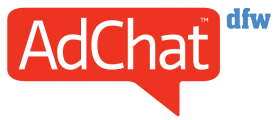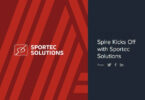It’s a common idea that we can all benefit from updating our professional online presence. But with the current number of layoffs in the marketing and advertising communities on the rise, the prospect of doing just that and perfecting your resume to reflect your competitive advantage can be quite the daunting undertaking.
We reached out to Christy Honeycutt, a 20-year HR and talent acquisition veteran, to get a few tips and tricks in overcoming the PTSD of being laid off, ageism and how to put your best foot forward for your next career adventure.
Check out our conversation:
Patty Harrison:
Joining us today is Christy Honeycutt, a 20-year veteran of HR, and a talent acquisition champion. We will be discussing the current state of HR and some really good tips to spruce up your online presence and resume. Well, hi Christy. Nice to speak with you today.
Christy Honeycutt:
Hi, Patty. It’s nice to speak with you.
Patty Harrison:
You’ve worked for different ad agencies and have a significant background talent acquisition. What is your current job title?
Christy Honeycutt:
I am the Senior Vice President of strategy development execution for a company called Appy Here that’s based out of Canada. We are changing the game for the underserved community of blue collar workers. Many of them have to follow the same process as a white collar employee, which is difficult because 87% of them are doing everything from their mobile phone and they don’t have resumes. It’s a technology that automates recruitment for companies and is saving them significant amount of money and time. We’ve taken, one client down from two weeks to execute, to one hour. So we’re literally saving days in their process and, helping them with recession proofing their business and their talent detraction.
Patty Harrison:
Fabulous. Well let’s get into the interview. Question number one, what in your opinion is the state of the current job market?
Christy Honeycutt:
It depends on who you ask. I know right now we’re in a soft recession. You’ve got stores that are closing, they can’t staff, you’ve got overhead that has been released recently, sitting within marketing, advertising, HR and talent to be specific. So I think it depends on the market, but those are definitely the areas that get cut first and we are seeing a little bit of an impact more than others.
Patty Harrison:
That seems to always be the case. They think that if they cut marketing, it’s going to somehow help their bottom line, but that’s usually the opposite thing of what they should do. Right?
Christy Honeycutt:
It’s shortsighted in some instances, because when the market recovers, those are going to be the positions that they hire back and then they’re going to miss that opportunity for speed to contribution.
Patty Harrison:
Talking about the job hiring process, do you look at people and their personalities in addition to their experience?
Christy Honeycutt:
There is such a thing as you might have heard people say, culture fit, which is not a good thing because that shows bias. I think most companies are leaning more towards a culture add. Many companies are just really looking for individuals with curiosity, eagerness to learn, eagerness to thrive and to win. The personality types from that are going to differ depending on the job, the industry, and things of that nature. And there are assessment tools that look for different types of competencies to bring into the organization.
Patty Harrison:
What are some top assessment tools HR uses to understand personality types?
Christy Honeycutt:
There’s a really fun one out there right now on TikTok from the CIA. Actually, the different personas that they use when they look at staffing a team is by animal types. There were four, there is a bear, there’s a fox and there’s a cheetah, and then there is a…
Patty Harrison:
Lion. Yes. We talked about that.
Christy Honeycutt:
A cheetah is someone that’s action oriented and wants to get the job done. A lion is usually safeguarding policies and procedures. A bear is very relationship oriented and a Fox is, you know, usually your foxes are going to be your CEOs or your strategy people. They’re really about uncovering new opportunities and innovation and you can sit in one of those as a primary, but there’s also a secondary. Personally, I’m a Fox, I’m a strategist, but I’m also a doer, a little bit of a cheetah as well, but there are so many different assessment tools out there to kind of garner those companies. We talked about drive and curiosity and things like that. There are tons of tools out there that different organizations use. Assessments should not be a decision factor for hiring somebody. They’re really meant to help people get onboarded and get up to speed quickly and to also make sure that the companies and organizations are setting those individuals up for success in their forward growth and momentum.
Patty Harrison:
Okay. So if you have been recently laid off, and there’s been quite a few layoffs lately in the ad world for sure. What’s the best way to get over your PTSD about it?
Christy Honeycutt:
There’s a lot of factors that go into play, so I think the first thing is just really identifying that it’s not singularly you and to look at it from different lenses. I tell most people you need to go through a morning phase and it’s that ego mourning phase of “Okay, I was headed down this path and now I’m not, now what do I do?” And I think the biggest thing is take a couple of days and really mourn and just feel all the feelings and then get them out of your system. And the best thing, what I coach people to do is to just really take an action every day and, and just continue. Just like you’re working out and, and you want to get healthy, you want to eat right and you want to go to the gym. Just take those steps every day.
One of the challenges too is that now you’ve must look at your resume that you may not have touched in 5, 10, 20 years and have to brag on yourself. And it can be difficult, especially when your ego’s hit. What I like to do is work with people and understand for each position you worked, what were the top three things that you did that impacted the organization? You know, don’t make it a laundry list of “I was responsible for forecasting and for client engagement and sales or, you know, the creativity on this” but more aligned with “I helped create a campaign for X company and it resulted in revenue of Y,” just more impactful result-oriented statements within your resume. And the other thing too is to think about who’s going to see it. Recruitment’s great, but not all recruiters are great.
It’s kind of how do you dummy it down so the person that’s reviewing the resume understands that you are a good match for the job. The other thing that’s really helpful is to look at your online presence, your LinkedIn, Fishbowl, whatever it is that you’re using. Look at your online presence and make sure that that’s reflective of your value proposition as an employee as well. Follow that same methodology that you would with your resume within your LinkedIn.
Patty Harrison:
So if somebody wants to update their online presence, update their resume, what are the top actions they can take?
Christy Honeycutt:
Yeah, that’s interesting, right? In marketing advertising is we’re all about positioning and shining a light on things.
For LinkedIn, you want to make sure you’ve got a tagline. So if somebody sees your title, there’s a really quick tagline that sums up what you do. For me it would be, you know, HR and talent acquisition champion. So whatever that looks like for that individual. The other thing is make sure you’ve got a headshot. A lot of people are really scared about headshots. There are actually tools out there right now. In fact, my LinkedIn is an AI generated headshot, so you don’t have to worry about getting a photographer or what you’re going to wear. You literally can upload 11 images of your face and it will spit out a headshot for you. Just make sure that you have a nice little headshot and a kind of a title that’s a really quick little snippet of your value prop.
And then there’s a portion where you can say what you’re passionate about. That’s a great place to expand on your personal mission statement. You know, I’m a marketer or I’m a creative director and I take pride in helping elevate brands in a unique way that’s inclusive of all cultures and backgrounds. Whatever your niche is, find a way to put that in copy. The other thing that’s really helpful is lean on your associates. Lean on your friends and your contacts and your network. On LinkedIn you can ask for referrals. If you’ve done good work at the organization and you were rift because of finances or a change in a direction of the company, I’m sure that you did good work within that company. Find those, those clients, or those advocates, and reach out to them and ask them, would they feel comfortable writing a recommendation for you? Those go a really long way. The other thing that’s really helpful is ask for referrals. Do you know anyone that’s hiring? I’m looking for a new role because you’ll be surprised. I mean you and I have done some networking to help some individual, so you’d be surprised how far that goes. And personal references and relationships are going to go so much farther than applying blindly to position.
Patty Harrison:
It’s always who you know.
Christy Honeycutt:
It’s all in who you know for sure.
Patty Harrison:
Let’s talk about the big elephant in the room. Ageism. Despite all the changes that have been made, is it still there? Why and how can we overcome it?
Christy Honeycutt:
It’s there in pockets. Probably everyone has biases and some of those are known and some are unknown. How to overcome that would be to… you’ve heard the term overqualified… I know you can’t see my air quotes, but overqualified, that’s a great way of saying somebody has too much experience, which probably means they’re aging. When you’re looking at your resume, a couple of things, I’d recommend. Never put your location because you’re putting that in a recruiter’s hand to determine if you’re in a commutable distance or not. They may not know that you’ve got a house in the Hamptons and you’re okay working from there. I would say don’t put your address on there. Also, on your resume you’ll see a lot of people that really, truly the only the last seven years is all they should report. Where you can kind of get around that ageism is in your overview. For me, I would say I have 20 plus years in HR with a specialty in talent. I actually do have 20 years with a specialty in talent, but if somebody that had 30 years, they may not want to say I have 30 years. They may want to say I have 20 plus years or 15 plus years. So there are ways to show that you have that tenure.
Patty Harrison:
But once you get an interview, you still have to do a face-to-face interview and they will see how old the person is. So how do you overcome that hurdle?
Christy Honeycutt:
In our current environment that’s changing because of the lack of qualified talent in the market. I think that you’ll see articles and things talking about…and I hate this term… you’ll see boomers coming back to the workforce. There are certain companies and certain industries that are targeting them reentering the workforce even for older individuals. So it’s really going to be a bit of finding that culture add, someone that’s going to value the diversity in age and what that brings to their culture as an addition for that wisdom that frankly isn’t there. One of the things that’s helpful for overcoming ageism that you see a lot of is the technical capabilities, being able to show you’re in the know and that you understand how to use the different technical components that are being utilized today. I think also just expressing your desire and commitment for the role and your passion will ultimately, you know, dial back the ageism.
Patty Harrison:
There’s so many online training courses for different technologies that if you just go for it, you can figure it out. It seems like every company in a way is a technology company. You have to be able to interface with technology to do your job. It doesn’t seem like anything you can get away from. I was going to ask one last question. If we have a balanced workplace that involves people from different races, different cultures, LGBTQ+ etc., it would follow that you would have to have a certain amount of older people too.
Christy Honeycutt:
Yes. I know you can’t see my head shaking up or down in agreeance with you. Absolutely. I know in my career it was a little bit challenging because I’ve managed both people older and younger than me. And that comes with a bit of humbleness because you do need to understand that the people that are older than you bring value in a different perspective. That it’s wonderful when it’s accepted and included in the overarching business objective. And it’s amazing what you can do together with all of that knowledge and those different backgrounds. You may know Gail Obaseki, she’s a DEI leader over at Integer. She did a great thing on honeycombs and it’s talking about just that, like what is the total makeup? It’s not just your race and your gender, your age, it’s also your socioeconomic background and your religious background and how you were raised. There’s just so many wonderful things that we have as a melting pot when we see them as culture additions. It’s amazing where you can get to together.
Patty Harrison:
Christy, this has been fascinating. Thank you so much for all these insights and these tools for people to use to find their best job. Is there anything I’ve missed?
Christy Honeycutt:
The biggest thing for people to take away is just to remember at the end of the day, we’re all humans. And to reach out to your advocates and see who you know, get a second set of opinions and do a mock interview with someone you trust and just really get over your nerves. And it’s okay to brag on yourself. Because that’s what an interview is. And companies want the best of the best.
Patty Harrison:
Okay, listen to that audience, get out there and brag on yourself.
Christy Honeycutt:
It’s the one time it’s OK!
Patty Harrison:
That’s right. Thanks Christy I appreciate the interview.
Christy Honeycutt:
Thank you so much.










